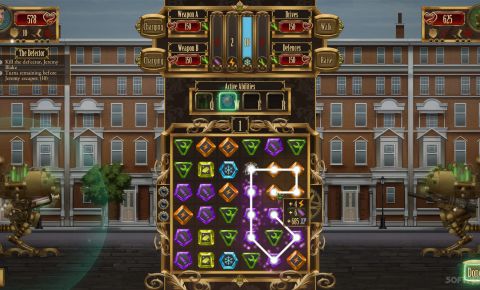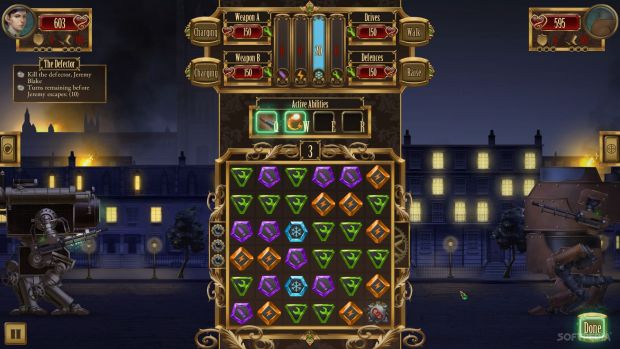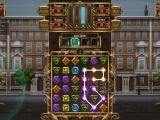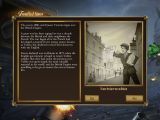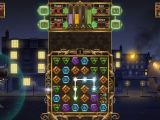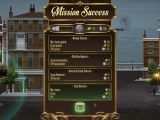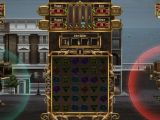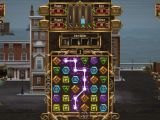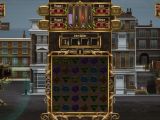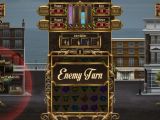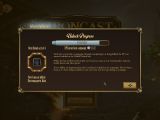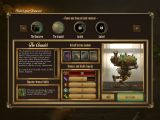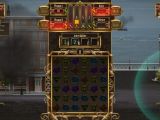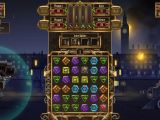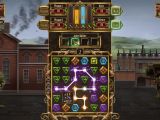The biggest problem related to Ironcast so far is that its name does not manage to convey the complexity of its mechanics or the amount of genres and influences that it mixes in an interesting way.
The title from Dreadbit initially seems like one of those games using matching mechanics to appeal to a wide audience and surf the wave of popularity introduced by Puzzle Quest, but it takes about two hours of play to discover that there's much more to explore and enjoy here.
Ironcast is a mech game, has a slight but engaging fiction to support it, has gem-based gameplay with at least one great twist, and also makes the player feel vulnerable at all times, with a clear reason to go out and perform as well as possible before a major event takes place.
Story
Ironcast takes gamers to a steampunk version of the XIX century in England and casts them as one of four commanders who can take control of four mechs that need to be guided in combat as they try to stop the French invasion, which is threatening to take out London in 9 days.
The enemy forces are using a powerful prototype unit and players need to carefully choose their missions for the remaining type in order to upgrade their own capabilities so that they can take out the spearhead and keep the nation safe.
The setting of Ironcast is not entirely original, but the development team are economical when it comes to their writing and wisely leave a lot of details to the imagination, while creating a setting where the focus is on the action rather than the story.
Both mechs and pilots need to be unlocked and the game uses the structure of a rogue-like, which means that a defeat marks the end of a campaign, but the player does get some rewards that are transferred and will make future runs more interesting.
Ironcast does not have a strong narrative, but it does feature a solid tutorial for players and manages to always deliver enough interesting details to keep them engaged.
Gameplay
Ironcast is a gem-matching game, but even the most dedicated of fans will be a little surprised with how familiar mechanics are used to power a pretty complex combat sequence between two powerful steampunk mechs.
Each of the missions players can undertake starts off with a first turn where weapons cannot be fired, although special abilities can be deployed, and gamers get a grid filled with a variety of colors and symbols.
They can choose to collect any sequence of three or more gems, and each color is designed to add to stores of four resources: ammunition, energy, coolant and repair.
“These are required for the player to operate two weapons, a drive system that moves the ironcast and a defensive suite that acts like a shield to absorb damage.”
There are also some special symbols that can power unique moves, linking two different types of resources or adding an overdrive to a system, to add an extra layer of complexity, and gamers can also collect scrap from the grid.
Three matches can be executed per turn, but between or after them the player can choose to activate any of the systems on their mech, based on the resources they have and the plan they have created to take out the adversary.
Both shields and movement can cause weapon fire to miss and the strategy of Ironcast is to deliver as many strikes as possible against the enemy while trying to keep one's own mech as protected as possible, minimizing damage to the health and to the various subsystems, which can be targeted independently.
Special abilities can alter the balance of power for each turn and each battle sequence, but I’ve noticed that the best tactic is to initially get the biggest chain of gems possible in order to get some space on the board and then target particular resources, trying to aim at the special nodes as soon as they appear.
There are moments when Ironcast feels a little too influenced by luck, especially when one resource is sorely needed and the game seems to basically hide it from the player on purpose, but the rogue-like structure means that it's relatively easy to accept defeat knowing that the next run through will offer new battles and choices.
The biggest problem with the game is that the combat turn of the opposing mechs is opaque and their board is not shown, which made me think that they might be playing by different rules, getting all the gems they need to make sure that they stay competitive for as long as possible.
The overheat system feels unfair at times, especially when blue gems have almost no presence on the grid, and there's no way for players to cool their mech in combat, which coupled with the difficulty has led me to some very painful defeats.
Graphics and audio
Ironcast uses a simple layout to make sure that gamers know exactly what they can do with their mech during combat at all times, but the title does not offer impressive quality in the graphics department.
The grid is the focus of the presentation, and from there, the eyes of the player can wonder to their own combat machine or that of the enemy, but I would have liked to see a little more of the game world and to get a better sense of how the English country side is affected by the war with France and the giant robots that are involved in it.
On the other hand, I like the bright colors used by the development team in order to make sure that players take a look at newly offered hardware and at the abilities they can add to their pilot and mech.
The sound design of Ironcast is suited to the theme of the game, but the variety offered is limited and I’ve found that use of some classic Empire music creates a much better atmosphere to play the game in.
Multiplayer
Unfortunately, Ironcast does not have a multiplayer mode, despite the fact that in many ways the mechanics are perfect for match-ups that include two humans.
The grid of gems would have to be shared and some of the mechanics might need some tweaks, but the competitive nature of the title and the variety of mechs and upgrades featured would guarantee interesting matches, even if they might not be perfectly balanced.
I can only hope that the development team at Dreadbit will include a multiplayer mode for the experience in the near future.
The Good
- Combination of match-3 and tactics
- Rogue-like progression
The Bad
- Needs a bit more story
- Some gem placements can be unfair
Conclusion
The upgrade and the combat systems mix beautifully and the variety of the enemy machines that appear in missions means that it's impossible for gamers to create a build that is immune from defeat.
There are moments when the gems align in entirely unfortunate ways, but even after a defeat, it is easy to select a new combination of pilot and mech and try out another combat strategy in order to attempt to defeat those pesky French and their powerful ironcastforces.
 14 DAY TRIAL //
14 DAY TRIAL // 